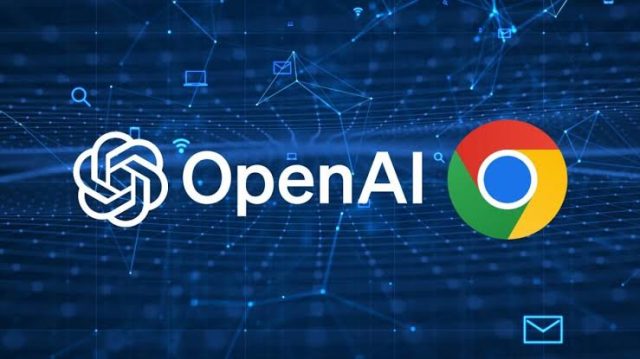OpenAI Explores Acquisition of Google Chrome, Says Executive

OpenAI has expressed interest in acquiring Google’s Chrome browser if antitrust regulators compel the tech giant to divest the popular web application to foster competition in the search market. This revelation came during a testimony by OpenAI’s head of product, Nick Turley, at Google’s ongoing antitrust trial in Washington. The trial, initiated by the U.S. Department of Justice, aims to address Google’s alleged monopoly in online search and related advertising, a claim that Google intends to contest.
OpenAI’s Position on Google’s Monopoly
During the trial, Turley highlighted OpenAI’s perspective on Google’s dominance in the search engine market. He noted that the U.S. District Judge Amit Mehta had previously determined that Google holds a monopoly, which has raised concerns about its impact on competition, particularly in the realm of artificial intelligence. Prosecutors argued that Google’s search monopoly could provide it with an unfair advantage in developing AI technologies, potentially steering users towards its own search engine through its AI products. In response, Google has pointed to the competitive landscape among companies like Meta Platforms and Microsoft, which are also developing generative AI products.
Turley further revealed that OpenAI had previously sought to collaborate with Google to integrate its search technology into ChatGPT. However, Google declined this request, citing concerns about competition. Turley emphasized that OpenAI believes partnerships with multiple search providers, including Google, would enhance the quality of their product. Currently, ChatGPT relies on Microsoft’s Bing for its search capabilities, and Turley indicated that the integration of Google’s technology could significantly improve user experience.
Implications of Exclusive Agreements
The trial has also shed light on Google’s exclusive agreements with device manufacturers, which have been a focal point in the antitrust case. Judge Mehta’s findings indicated that Google has maintained its search monopoly by securing exclusive contracts with companies like Samsung Electronics, ensuring that its search engine is the default option on new devices. Documents presented during the trial revealed that Google had considered similar exclusivity for its Gemini AI app and Chrome browser.
In a shift towards compliance with the court’s ruling, Google has recently altered its agreements with device makers, allowing them to pre-install rival search engines. This move aligns with Google’s assertion that non-exclusive agreements are a suitable remedy for addressing the monopoly concerns raised by the court. However, the DOJ is advocating for more stringent measures, including a ban on Google’s lucrative payments to manufacturers for default search app installations.
Future of Competition in Search and AI
As the trial progresses, the implications for the future of competition in both search and AI are becoming increasingly significant. Turley testified that the DOJ’s proposal to require Google to share search data with competitors could accelerate advancements in ChatGPT, enabling it to provide more accurate and timely responses to user queries. He acknowledged that ChatGPT is still several years away from achieving its goal of independently answering a substantial majority of queries.
The ongoing legal proceedings not only highlight the competitive dynamics within the tech industry but also underscore the broader implications for consumers and developers alike. As OpenAI and other companies continue to innovate in the AI space, the outcome of this trial could reshape the landscape of online search and the tools that users rely on for information.
Observer Voice is the one stop site for National, International news, Sports, Editor’s Choice, Art/culture contents, Quotes and much more. We also cover historical contents. Historical contents includes World History, Indian History, and what happened today. The website also covers Entertainment across the India and World.

